The 18th National Conference on Clinical Oncology and the 2015 CSCO Academic Annual Conference plenary meeting was held on the afternoon of September 18, 2015 in the Strait Conference Hall of Xiamen International Conference Center. The conference was chaired by Professor Li Jin and Professor Wang Luhua. Academician Sun Yan, Honorary Chairman of the Conference, Academician Cao Xuetao, President of the Chinese Academy of Medical Sciences, and Professor Wu Yilong, Chairman of the Conference, delivered speeches respectively.
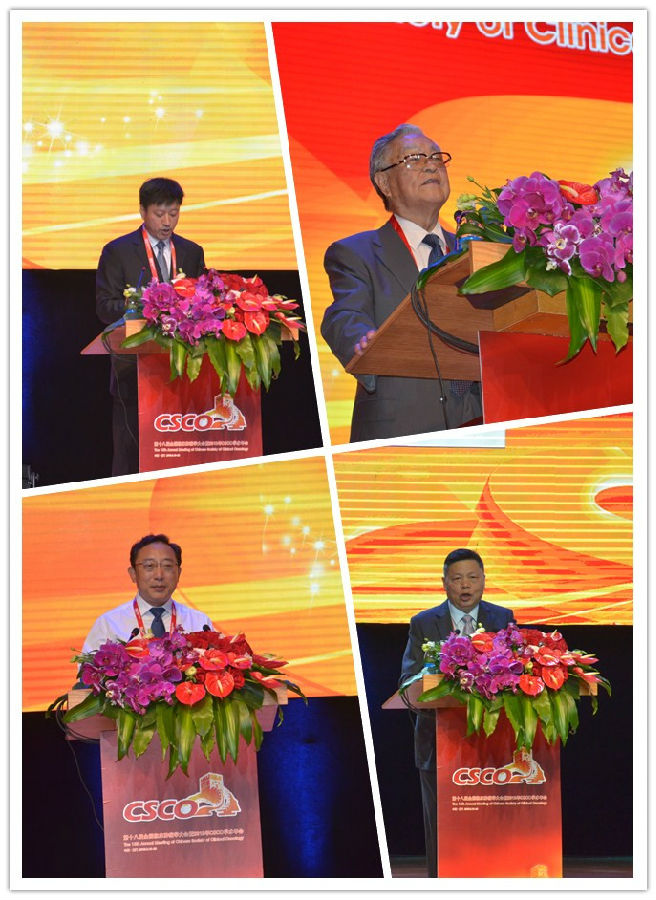
cademician Sun Yan, honorary chairman of the Chinese Society of Clinical Oncology, said in his speech that the Chinese Society of Clinical Oncology has been committed to the purpose of "unity, pragmatism and collaboration" since its establishment. As a first-level society, CSCO's main responsibilities include ① providing academic Communication platform; ②Assist the government to formulate and promote diagnosis and treatment standards, and improve the treatment level of the national counterparts, so as to benefit the majority of patients; ③Actively carry out international cooperation and cooperate with brother units to advance together; ④Actively organize the national development of new anti-cancer drugs and Provide high-level evidence-based medical evidence for new treatments; ⑤ popularize knowledge of clinical oncology. Over the past 18 years, CSCO has made a lot of positive efforts, and the achievements are obvious to all. Academician Sun believes that the main reason for CSCO's success is that the conference has the correct purpose of "unity, pragmatism, collaboration, development, and innovation"; combined with national conditions and based on domestic exchanges, it has won recognition from all walks of life; in addition, CSCO has strengthened cooperation with foreign organizations ( Including ASCO, ESMO, AACR, etc.) cooperative continuing education, which has been recognized by the global peers; fourth, cultivate a group of outstanding, responsible and aggressive young and middle-aged academic talents, "the young people in our village are great".
Academician Cao Xuetao from the Chinese Academy of Medical Sciences first extended warm congratulations to the convening of this CSCO academic annual meeting on behalf of the Chinese Academy of Medical Sciences and the national medical community. The prevention and control of tumors has always been a hot spot in the global medical community and even the whole society. Oncologists from all over the world are constantly tackling key problems. As an important force in the field of Chinese oncology, CSCO has strengthened domestic and foreign exchanges to promote the development of clinical tumors in my country for many years. As well as the cooperation between physicians, unremitting efforts have been made and achievements are obvious to all. The academic conference of CSCO has become the best platform for clinical oncologists in Asia and other countries to carry out academic exchanges and cooperation, in order to improve the level of tumor treatment in Asia. played a positive role in promoting. Academician Cao said in his speech that the approval of CSCO as a first-level society by the State Council is a gratifying event for the Chinese oncology community and even the medical community. The solidarity and cooperation with domestic and foreign organizations is conducive to vigorously promoting the cause of clinical oncology with Chinese characteristics, thereby promoting the development of my country's anti-tumor cause.
On behalf of the Chinese Society of Clinical Oncology, Professor Wu Yilong expressed his gratitude to the colleagues from home and abroad for participating in this annual CSCO academic conference. The conference consisted of 95 international speakers and 450 domestic speakers. Speaker, held more than 500 special sessions, 66 forums, 14 international special sessions...
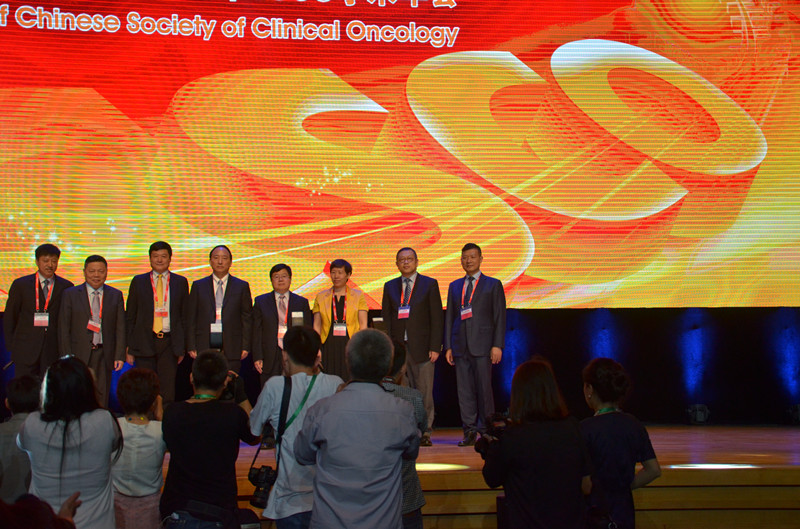
At the meeting, Professor Wang Luhua presided over the award ceremony. First, Professor Liao Meilin and Professor Guan Zhongzhen announced and presented the "CSCO Annual Achievement Award". The winners were Professor Li Jin of Fudan University Cancer Hospital and Shanghai Tianyou Hospital Affiliated to Tongji University. Professor Li Jin led Chinese experts to lead a project An international multi-center randomized regorafenib vs placebo-controlled study involving 25 centers in Hong Kong, Taiwan, South Korea, and Japan, with a total of 204 colorectal cancer patients participating.
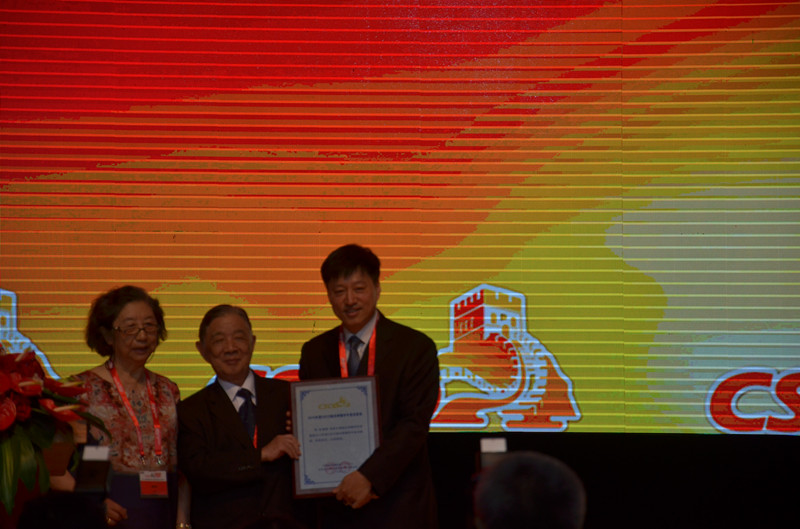
Subsequently, Professor Ma Jun, director of the Heilongjiang Institute of Hematology, announced the 2015 China Clinical Oncology Science Foundation Outstanding Paper Award. The first prize is the award-winning article by Deng Yanhong et al. from the Sixth Affiliated Hospital of Sun Yat-sen University, A multicenter randomized controlled clinical study (FOWARC study) comparing mFOLFOX6 with or without radiotherapy in neoadjuvant treatment of locally advanced rectal cancer: preliminary results. The second prize was awarded by Jiang Liyan et al. Shanghai Chest Hospital et al. The expression of PD-L1 in Chinese non-small cell lung cancer patients and its relationship with other lung cancer driver genes. The third prize was awarded to 5 units including Fudan University Zhongshan Hospital, Fudan University Shanghai Cancer Center, Guangdong General Hospital, Peking University Cancer Institute, and Harbin Medical University Cancer Hospital.
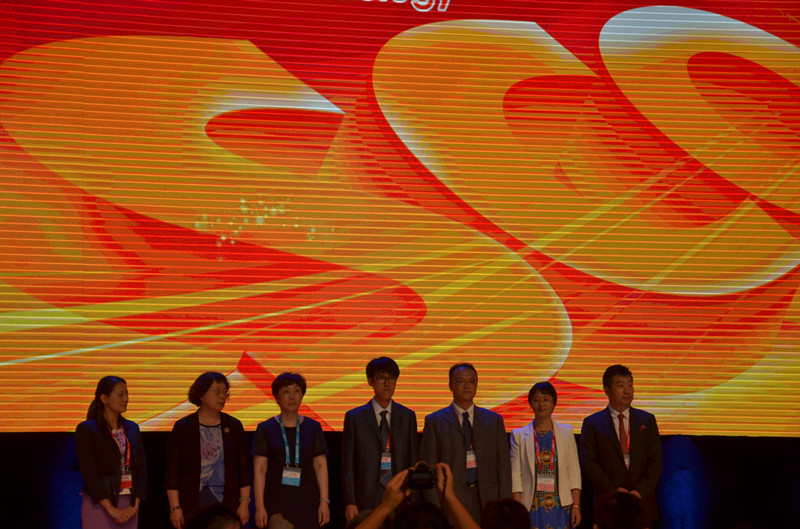
The award ceremony ended after Prof. Qin Shukui announced the establishment of the CSCO-Hengrui Cancer Research Foundation. The conference entered the academic chapter and was chaired by Professor Wu Yilong and Professor Qin Shukui. The first is the conference report, which is a wonderful report titled "Precision Medicine and Genetic Testing of Lung Cancer" by Professor Paul Bunn from the United States, and "The Development of Precision Medicine in France" by Agnes Buzyn, a professor of hematology from France 's speech. After entering the Chinese report section, Academician Cao Xuetao of the Chinese Academy of Medical Sciences made a wonderful report on "Current Situation and Future Development Trends of Tumor Immunotherapy", explaining the tumor microenvironment, chronic inflammation and tumor immune escape mechanism, and the role of inhibitory immune microenvironment for tumor treatment. Influence, novel immune adjuvant and its application in mobilizing innate immune response and tumor immunotherapy, reversing immunosuppression and blocking immune escape in tumor immunotherapy.
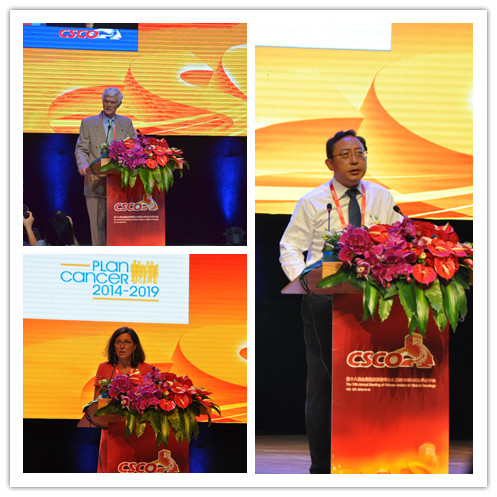
In the paper exchange session, Prof. Cheng Ying from Jilin Cancer Hospital reported a randomized controlled trial in East Asian patients with advanced NS non-small cell lung cancer, exploring gefitinib with or without pemetrexed as an EGFR mutation NSCLC patients with first-line treatment efficacy. Prof. Yongfeng Yu from Shanghai Jiaotong University Chest Hospital reported a multicenter, open-label, randomized phase 3 study comparing gefitinib plus chemotherapy versus chemotherapy alone for insertion and maintenance therapy in advanced NSCLC. Prof. Deng Yanhong from the Sixth Hospital of Sun Yat-Sen University explained the preliminary results of a multicenter randomized controlled clinical study (FOWARC study) comparing mFOLFOX6 with or without radiotherapy in neoadjuvant treatment of locally advanced rectal cancer. In response to the latest data of these important studies, Professor Yang Zhixin and Professor Xu Ruihua made wonderful comments respectively.
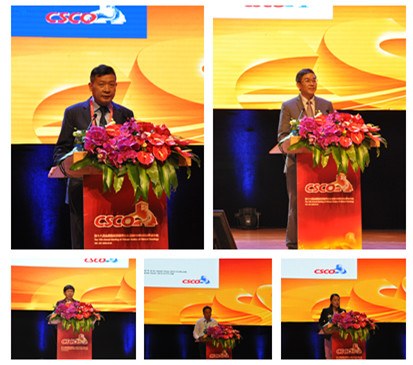
Original excerpt from: Yimaitong